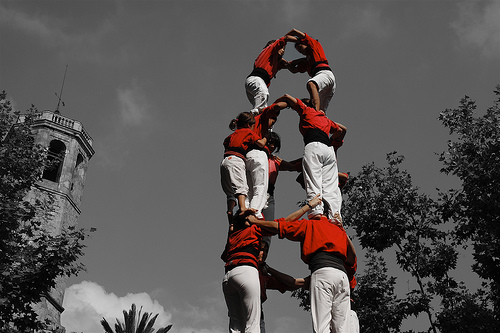

The desire to travel is the desire for change. Travel also instils a greater desire to explore and discover as you want to get to know your new surroundings and diversify your experiences. In fact, it can even lead to you exploring more of a foreign land than you have in your own country.
As such, there is a lot of value to travel. As described in this video, travel connects you on many levels to the land and people around you. It connects you to nature as well as to culture. It can challenge your stereotypes, preconceptions and expectations. It can also open your eyes and mind to different causes happening in different parts of the world.
Table of Contents
Barcelona is a great base point from which to explore and experience the beautiful nat
There is also the mountains of Montserrat just a short train ride away, and makes an easy and very enjoyable day trip. This is an easy and fantastic option to escape city life and reconnect with nature. However, it’s a popular place, given its easy reach from Barcelona. If you like your nature really peaceful and far from the city, there are a wealth of options on offer. Of course, there is the Pyrenees just a few hours from the city. Need I say more?!
When you travel, you discover and connect with cultures. What’s more, you learn the authentic culture rather as opposed to preconceived or stereotyped notions of the culture. And by being right in among the culture, you will learn about wonderful quirky traditions that nobody ever told you about.
For instance, one unique Catalan tradition, which you are sure to learn about if you spend any significant time in Catalonia, relates to a type of green onion, called Calçot. Every year, between Novemeber and April, people celebrate the harvest of Calçots with Calçotadas, where the vegetable is barbecued and eaten with a delicious Romesco sauce. This will typically be accompanied by plenty of meat, bread and of course cava to wash it down! But being at one, you do get the sense that the most important element is the sociable aspect, an excuse to bring friends and family together, with different generations getting involved and interacting in a fun and informal setting. This for me is really the essence of the Catalan people.
Another very unique and important Catalan phenomenon, originating at the end of the 18th century, is that of the human towers, known as Castellers. Not a lot seems to have changed from the original tradition whereby rival groups of people called colles competed against each other with their varied human structures. The Castellers typically take place on special celebrations and public holidays but can be found on many days of the year and in many locations. It’s a fantastically impressive sight when you see it live before your eyes!
There are several other t
This article only scratches the surface of all the unique and interesting things about Barcelona and Catalonia. In short, it is a land rich in nature and culture, with plenty to learn, enlighten and entertain!
Barcelona’s Mediterranean climate, with increasingly warmer and longer summers, makes air conditioning an essential feature…
Maybe you're thinking about selling a property or you've just inherited one or more real…
Do you enjoy strolling among trees and plants, away from the hustle and bustle of…
If you are planning to move to Barcelona for a few months or permanently, one…
ShBarcelona establishes itself as the leading agency within the Apialia Eixample Group, reaffirming its position…
Are you going to visit Barcelona this 2025? The vibrant Catalan capital once again becomes…